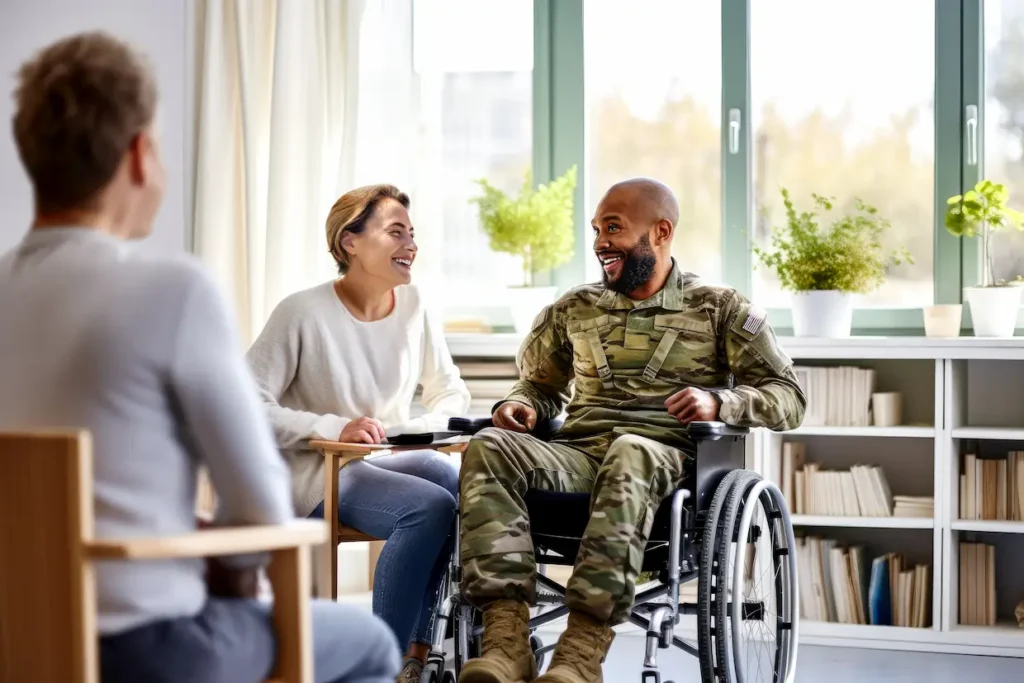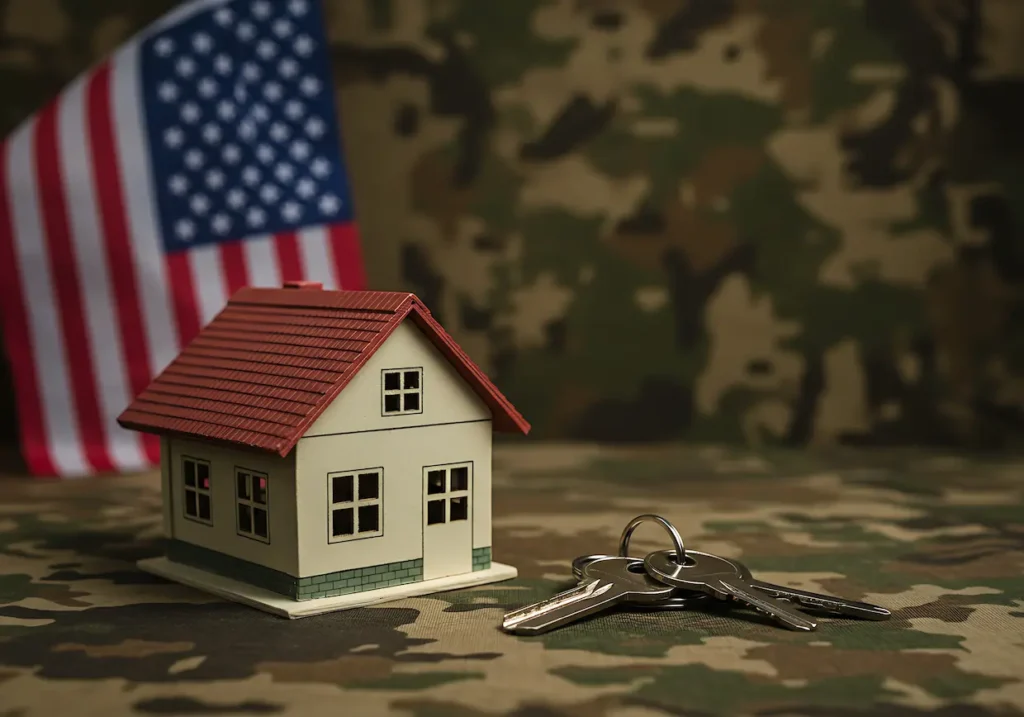Introduction: Understanding Spousal Benefits for 100% Disabled Veterans
When a veteran receives a 100 percent disability rating from the Department of Veterans Affairs (VA), both the veteran and their spouse become eligible for numerous valuable benefits. These benefits are designed to provide financial support, healthcare access, educational opportunities, and other forms of assistance to help families cope with the challenges associated with service-connected disabilities. For spouses of 100 percent disabled veterans, understanding these benefits is crucial for maximizing the support available to your family.
This comprehensive guide explores the complete range of VA benefits available to spouses of veterans with a 100% disability rating, including crucial distinctions between different types of ratings and what happens to these benefits when a veteran passes away. Whether you’re newly navigating the VA system or seeking to ensure you’re receiving all entitled benefits, this article provides the essential information you need in 2025.
What Does a 100 Percent Disability Rating Mean?
Before diving into specific spousal benefits, it’s important to understand what a 100 percent disability rating signifies and the critical distinction that affects eligibility for many benefits.
Types of 100% Disability Ratings
The VA assigns a 100 percent disability rating when a veteran’s service-connected condition(s) are considered totally disabling based on the VA’s Schedule for Rating Disabilities. This rating can be achieved in two primary ways:
- Scheduler 100% Rating: When the combined severity of service-connected conditions reaches the 100% threshold on the VA’s rating schedule.
- Total Disability Based on Individual Unemployability (TDIU): When service-connected conditions prevent the veteran from maintaining substantially gainful employment, even if their combined rating is less than 100%.
The Critical P&T Designation
A key factor that significantly impacts spouse eligibility for certain benefits is whether the veteran’s 100% rating is designated as Permanent and Total (P&T).
- Total disability means the condition causes complete impairment in earning capacity.
- Permanent disability means the VA does not expect improvement in the veteran’s condition over their lifetime.
Many of the most substantial benefits for spouses require this P&T designation. You can typically determine if a rating is permanent by checking the veteran’s VA decision letter, which may state that no future examinations are scheduled or explicitly mention dependent eligibility for Chapter 35 benefits or CHAMPVA.
Financial Benefits for Spouses of 100% Disabled Veterans
While the primary VA disability compensation is paid directly to the veteran, several financial benefits directly or indirectly benefit spouses.
Increased Monthly VA Compensation
Veterans with a disability rating of 30% or higher receive additional compensation for dependents, including spouses. For veterans with a 100% rating, this increase is substantial:
- 2025 Rates: A 100% disabled veteran with a spouse and no children receives $4,044.91 per month (effective December 1, 2024), compared to $3,831.30 for a single veteran.
- With Children: The monthly payment increases further for dependent children ($106.14 per child under 18 and $342.85 for children over 18 in qualifying educational programs).
Aid and Attendance for Spouse
If the veteran’s spouse requires assistance with daily living activities due to disability, an additional allowance may be added to the veteran’s monthly compensation:
- 2025 Rate: $195.92 per month is added when a 100% disabled veteran has a spouse needing Aid and Attendance.
Property Tax Exemptions
Many states offer property tax reductions or complete exemptions for homes owned by 100% disabled veterans:
- This benefit varies significantly by state, with some offering complete property tax exemptions.
- While technically a veteran benefit, this directly impacts the household’s financial situation, benefitting the spouse.
VA Home Loan Funding Fee Waiver
Veterans with a disability rating of 10% or higher (including 100% disabled veterans) are exempt from paying the VA home loan funding fee, which can save thousands of dollars when purchasing a home. This benefit extends to the household and makes homeownership more accessible for veterans and their spouses.
Healthcare Benefits for Spouses
Healthcare coverage is one of the most valuable benefits available to spouses of 100% P&T disabled veterans.
CHAMPVA (Civilian Health and Medical Program of the VA)
CHAMPVA is the primary healthcare program for spouses of veterans with a permanent and total disability rating:
- Eligibility: Spouses of veterans with a 100% P&T disability rating are eligible for CHAMPVA if they do not qualify for TRICARE.
- Coverage: CHAMPVA shares costs for most medically necessary healthcare services and supplies from civilian providers, including:
- Inpatient and outpatient services
- Prescription medications
- Mental healthcare
- Durable medical equipment
- Costs: After satisfying an annual deductible ($50 individual/$100 family), CHAMPVA covers 75% of allowable expenses, with beneficiaries responsible for the remaining 25% co-payment.
- Application Process: Spouses must submit VA Form 10-10d along with supporting documentation. Processing can take several weeks or months.
Caregiver Support Programs
If the spouse serves as the primary caregiver for the disabled veteran, they may be eligible for the Program of Comprehensive Assistance for Family Caregivers (PCAFC):
- Benefits include: Monthly financial stipend, healthcare coverage (if not already covered), mental health services, caregiver training, and respite care.
- Eligibility: Based on the veteran’s needs and service era.
Educational Benefits for Spouses
Spouses of 100% P&T disabled veterans have access to significant educational assistance programs that can help them pursue degrees, certifications, or vocational training.
Survivors’ and Dependents’ Educational Assistance (DEA) Program (Chapter 35)
The DEA program is a cornerstone educational benefit for spouses of 100% P&T disabled veterans:
- Eligibility: Available to spouses of veterans with a permanent and total disability rating due to service-connected conditions.
- Coverage: Provides financial assistance for:
- College degrees
- Vocational training
- Apprenticeships
- On-the-job training
- Correspondence courses (spouses only)
- Duration: Up to 36 months of full-time benefits for those whose eligibility began on or after August 1, 2018 (45 months if eligibility began before that date).
- Time Restrictions:
- New for 2025: If the veteran received their 100% disability rating after August 1, 2023, there is no time limit for spouses to use DEA benefits.
- Otherwise, spouses generally have 10 years from the date of eligibility determination to use their benefits.
- Application: Apply using VA Form 22-5490, either online or by mail.
Career Counseling (Chapter 36)
Spouses eligible for certain VA education benefits may qualify for free educational and career counseling services:
- Helps with career exploration
- Provides guidance for education planning
- Assists with academic and adjustment counseling
State-Specific Education Benefits
Many states offer additional education benefits for spouses of 100% disabled veterans:
- Some states provide free or reduced tuition at state colleges and universities
- Benefits vary significantly by state, so it’s important to check with your state’s veterans affairs office
Military Installation Privileges
Spouses of 100% disabled veterans gain access to various military installation benefits that can provide significant cost savings and access to services:
Commissary, Exchange, and MWR Access
- Commissary: Access to on-base grocery stores with tax-free shopping and discounted prices
- Exchange: Tax-free department store shopping at military exchanges
- MWR Facilities: Access to recreational facilities, fitness centers, and other morale, welfare, and recreation services on military installations
Spouses can obtain a Uniformed Services Identification Card (USID) to access these facilities, which can lead to significant cost savings for household essentials, electronics, and other consumer goods.
Benefits for Surviving Spouses After a Veteran’s Death
A crucial point for spouses to understand is that VA disability compensation does not continue after the veteran’s death. However, several important benefits may become available to surviving spouses:
Dependency and Indemnity Compensation (DIC)
DIC is a tax-free monthly benefit paid to eligible surviving spouses:
- Eligibility: A surviving spouse qualifies for DIC if:
- The veteran’s death was due to a service-connected condition, OR
- The veteran was rated totally disabled (including TDIU) for at least:
- 10 years before death, OR
- 5 years from discharge until death, OR
- 1 year before death if the veteran was a former prisoner of war who died after September 30, 1999
- Marital Requirements:
- Must have been married to the veteran for at least one year (or have had a child with the veteran)
- Must have lived with the veteran continuously until death (unless separation occurred without the spouse’s fault)
- Remarriage typically terminates DIC eligibility, though there are exceptions for remarriages after age 57
- 2025 DIC Rates:
- Base rate: $1,653.07 per month
- Additional $351.02 if the veteran was rated totally disabled for at least 8 continuous years before death and the spouse was married to the veteran during those 8 years
- Aid and Attendance supplement: $409.53 if the surviving spouse requires help with daily activities
- Housebound supplement: $191.85 if the surviving spouse is permanently housebound
Continued Healthcare Coverage
Surviving spouses who were eligible for CHAMPVA while the veteran was alive generally maintain their CHAMPVA eligibility after the veteran’s death if they meet certain criteria.
Educational Benefits
Surviving spouses may continue to use DEA benefits after the veteran’s death, subject to the program’s time limitations. In some cases, spouses may also become eligible for the Marine Gunnery Sergeant John David Fry Scholarship if the veteran died from a service-connected disability.
VA Survivors Pension
This needs-based benefit is available to qualifying low-income surviving spouses of veterans with wartime service:
- Eligibility depends on income and net worth limits
- The spouse receives either DIC or Survivors Pension, whichever provides the higher payment
Burial Benefits
Surviving spouses may be eligible for:
- Allowances to help pay for the veteran’s burial and funeral costs
- Burial in a VA national cemetery
- Memorial items like a headstone or burial flag
How to Apply for Spouse Benefits
Navigating the application process for VA spouse benefits can be complex. Here are key steps to consider:
Required Documentation
Most benefit applications require specific documentation, including:
- The veteran’s discharge papers (DD214)
- Marriage certificate
- Veteran’s VA decision letters (especially those confirming the 100% P&T rating)
- Birth certificates for dependent children (if applicable)
- Documentation of any special circumstances (need for Aid and Attendance, etc.)
Where to Apply
Depending on the specific benefit, applications may be submitted:
- Online through VA.gov
- By mail to the appropriate VA office
- In person at a VA regional office
Getting Help with Applications
The application process can be complex, and assistance is available from:
- Veteran Service Organizations (VSOs): Organizations like the DAV, VFW, and American Legion provide free assistance with benefits applications
- VA Regional Offices: VA staff can provide guidance and assistance
- Accredited Attorneys: For complex cases or appeals, specialized legal assistance may be beneficial
Conclusion: Maximizing Your Benefits as a Spouse of a 100% Disabled Veteran
As the spouse of a 100% disabled veteran, you have access to a comprehensive range of benefits designed to provide financial support, healthcare, education, and other forms of assistance. Understanding the full scope of these benefits—especially the distinction between different types of 100% ratings and the importance of the P&T designation—is essential for ensuring you receive all the support to which you’re entitled.
The most valuable spouse benefits typically include CHAMPVA healthcare coverage, DEA educational benefits, increased monthly compensation for the veteran, and potential DIC benefits for surviving spouses. However, every family situation is unique, and benefits usage should be tailored to your specific circumstances.
We recommend working with an experienced VSO representative or VA-accredited attorney to ensure you’re maximizing your benefits and properly navigating the application processes. These benefits represent our nation’s commitment to supporting not just veterans, but the families who stand beside them through the challenges resulting from service-connected disabilities.
Resources for Further Assistance
- VA Benefits Hotline: 1-800-827-1000
- CHAMPVA Customer Service: 1-800-733-8387
- Education Benefits (GI Bill Hotline): 1-888-442-4551
- VA Caregiver Support Line: 1-855-260-3274
- VA.gov: www.va.gov


